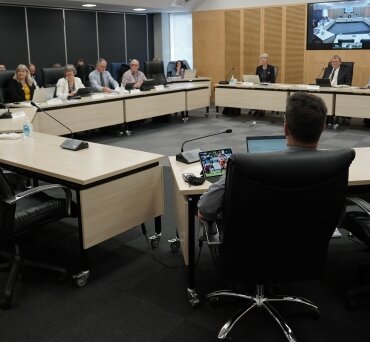
 Waipā District Council has held a series of behind closed doors meetings and interviews to discuss the future role of community boards.
Waipā District Council has held a series of behind closed doors meetings and interviews to discuss the future role of community boards.
The talkfest between council staff, councillors and community stakeholders comes only a week after The News revealed the two boards have gone off script with their involvement in dogs and water consultation.
The News – which was not consulted as a community stakeholder – also understands considerable personal clashes interferes with both boards’ ability to function effectively.
Some board members are not talking to each other, some members do not have confidence in their chair and there are signals there will be a paucity of candidates come local body election time.
Twelve months ago the council was accused of going behind the community boards’ backs in attempting to get rid of them and replace with committees.
But a rear-guard action from the two chairs, Sue Milner and Ange Holt, who went public with their concerns, saved the day and the council voted to retain community boards.
Mike Pettit, a former Cambridge Community Board chair and now district councillor, told council last year some “hard questions” had to be asked about their future.
“I do not think they should be going on in their current state.”
Staff were told to undertake a review of the role and functions of the community boards.
Acting chief executive Ken Morris said the series of meetings and interviews were conducted independently in recent weeks. They included Local Government New Zealand’s Centre of Excellence general manager Steven Finlay.
“Those discussions were conducted on a confidential basis, and this was made clear to all participants at the time,” said Morris.
“We needed to honour that commitment. The workshop was an opportunity to bring that feedback back around the table and for people to be able to freely and frankly raise anything else they wanted to say, in a confidential setting.”
He said those attending the workshops – councillors and community board members – did not receive meeting fees. The workshops involved six community board and 12 council members.
“There were no decisions made at the workshop yesterday. But feedback from the interviews, plus the discussion yesterday, will build a series of recommendations to be included in a report going to the Council meeting at the end of July. That report will be publicly available.”
Community boards were established in 1989 following the last major local government restructure and in Waipā they meet 10-11 times a year.
In Cambridge the board is chaired by Sue Milner and its members are Elise Badger, Jo Davies-Colley, Alana MacKay, Jim Goddin and Mike Montgomerie.
The Te Awamutu Board, chaired by Ange Holt, comprises Kane Titchener, Jill Taylor and Richard Hurrell.
Annually, the chairs receive $19,327 (Cambridge) and $18,662 (Te Awamutu). Board members are paid $9663 (Cambridge) and $9331 (Te Awamutu).
The boards also have members appointed by the Waipā District Council who do not receive additional payments for their time.
- Sue Milner
- Elise Badger
- Jo Davies-Colley
- Alana MacKay
- Jim Goddin
- Mike Montgomerie
See: Boards in The News
















